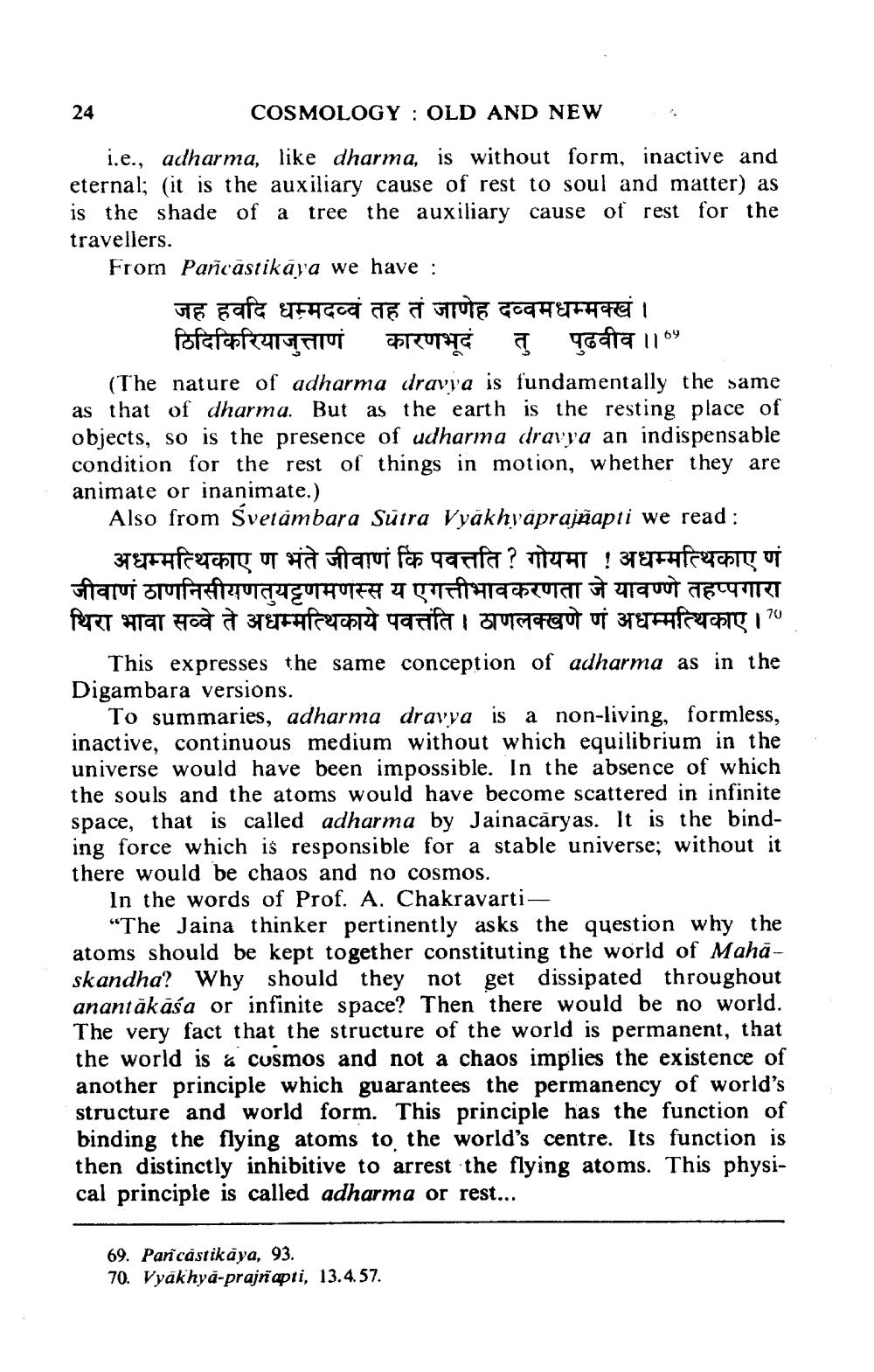________________
COSMOLOGY : OLD AND NEW i.e., adharma, like dharma, is without form, inactive and eternal; (it is the auxiliary cause of rest to soul and matter) as is the shade of a tree the auxiliary cause of rest for the travellers. From Pañcāstikāya we have :
जह हवदि धम्मदव्वं तह तं जाणेह दव्वमधम्मक्खं।
ठिदिकिरियाजुत्ताणं कारणभूदं तु पुढवीव ।।" (The nature of adharma dravva is fundamentally the same as that of dharma. But as the earth is the resting place of objects, so is the presence of udharma dravya an indispensable condition for the rest of things in motion, whether they are animate or inanimate.)
Also from Svetambara Sutra Vyakhyaprajāapti we read :
अधम्मत्थिकाए ण भंते जीवाणं कि पवत्तति? गोयमा ! अधम्मत्थिकाए णं जीवाणं ठाणनिसीयणतयट्टणमणस्स य एगत्तीभावकरणता जे यावण्णे तहप्पगारा थिरा भावा सव्वे ते अधम्मत्थिकाये पवत्तंति। ठाणलक्खणे णं अधम्मत्थिकाए।
This expresses the same conception of adharma as in the Digambara versions.
To summaries, adharma dravya is a non-living, formless, inactive, continuous medium without which equilibrium in the universe would have been impossible. In the absence of which the souls and the atoms would have become scattered in infinite space, that is called adharma by Jainacāryas. It is the binding force which is responsible for a stable universe; without it there would be chaos and no cosmos.
In the words of Prof. A. Chakravarti
“The Jaina thinker pertinently asks the question why the atoms should be kept together constituting the world of Mahāskandha? Why should they not get dissipated throughout anantākasa or infinite space? Then there would be no world. The very fact that the structure of the world is permanent, t the world is a cusmos and not a chaos implies the existence of another principle which guarantees the permanency of world's structure and world form. This principle has the function of binding the flying atoms to the world's centre. Its function is then distinctly inhibitive to arrest the flying atoms. This physical principle is called adharma or rest...
69. Par castikaya, 93. 70. Vyakhya-prajñapri, 13.4.57.




